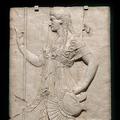037 Inconstantia rerum
"Inconstancy" or "Uncertainty"|"of things"
不変性|
037 Unbeständigkeit der Dinge
037 Inconstancy of things
037 Inconstancia de las cosas
037 Inconstance des choses
037 物事の不一致
037 Inconstantie van dingen
037 Inconstância das coisas
037 Непостоянство вещей
037 Inkonstans av saker
037 Непостійність речей
En!
dans
In!
En!
はい!
in illo colle ante tria fere saecula arx amplissima et firmissima fuit.
sur|ce|colline|avant||près de|siècles|forteresse|très vaste||très solide|
"on"|"in that"|"hill"|"before" or "in front of"|three|almost|centuries|fortress|very large||very strong|"there was"
On that hill about three centuries before the citadel was the most extensive and most stable.
約三世紀前、この丘に広大で非常に堅固な城がありました。
Domini arcis viri fortissimi et nobilissimi fuerunt.
des seigneurs|de la forteresse|hommes|très||nobles|furent
"Lords" or "Masters"|"of the citadel"|"men" or "warriors"|"very brave"||most noble|"have been"
|城の|||||
The lords of the citadel were the most valiant and noblest men.
城の主たちは非常に力強く、貴族的な男たちでした。
Nunc illius arcis muri tantum exstant.
maintenant|de cette||murs||
"Now"|"of that"|of the fortress|walls|only|still stand
||城の|||
Now only the walls of that citadel stand.
今、その城の壁はただ残っているだけです。
Et in hac planitie, in qua nunc arva laeta, agros fecundos, prata viridia videmus, antiquis temporibus urbs celeberrima fuit.
et|dans|cette|plaine||||les champs|heureux||fertiles|prairies|vertes|nous voyons|antiquis|temps|la ville|très célèbre|
||"in this"|plain||"in which"|"now"|fields|"fertile fields"|fertile fields|fertile fields|green meadows|green meadows|we see|"in ancient times"|"in ancient times"|city|most famous city|"was"
||||||||||肥沃な||||||||
And in this plain, in which we now see fruitful fields, fields for decades, and green meadows, the city was most famous in ancient times.
そしてこの平原では、今や豊かな畑、肥沃な農地、緑の草原が見られるが、古代には非常に有名な都市が存在していた。
Multa sunt exempla inconstantiae rerum humanarum.
il y a beaucoup||d'exemples|d'inconstance|des choses|humaines
Many|"there are"|examples|"of instability"|"of human affairs"|"of human affairs"
|||不変性||
There are many examples of the inconstancy of human affairs.
人間の事物の不安定さの例は多くあります。
Romani antiqui diu domini fuerunt orbis terrarum.
||longtemps||||
The Romans|ancient|for a long time|"masters" or "lords"|"have been"|world|"of the lands"
|||||世界|
The ancient Romans were the masters of the world for a long time.
古代ローマは長い間、世界の支配者であった。
Sed nimia potentia iis perniciosa fuit.
|trop de||à eux|pernicieuse|
But|excessive|excessive power|"to them"|harmful|
But too much power was destructive to them.
しかし、過度の権力は彼らに有害であった。
Imprimis avaritia et luxuria causae interitus imperii Romani fuerunt.
premièrement|avarice||luxure|les causes|de la destruction|de l'empire||
"First of all"|greed||extravagance|causes of|destruction|of the empire||"have been"
|||||滅亡|||
First of all, avarice and luxury were the causes of the destruction of the Roman Empire.
特に、強欲と贅沢がローマ帝国の滅亡の原因となった。
Ceterum tu quoque, quam infirmus et caducus es!
d'ailleurs||aussi||faible||fragile|
"Moreover"|"you"|"also" or "you too"|"how"|weak and frail||frail|"you are"
||||||脆弱で無|
Besides, you too, how weak and weak you are!
さらにお前も、どれほど弱く儚い存在か!
Tu hodie non es, qui heri fuisti, nec cras eris , qui hodie es.
|aujourd'hui||||hier|as été||||||
You|today|"not"|"you are"|who|yesterday|"you were"|"nor"|tomorrow|"you will be"|who|"today"|"you are"
|||||昨日|||||||
You are not today who you were yesterday, nor will you be tomorrow who you are today.
お前は今日、昨日の自分ではなく、明日の自分でもない。

